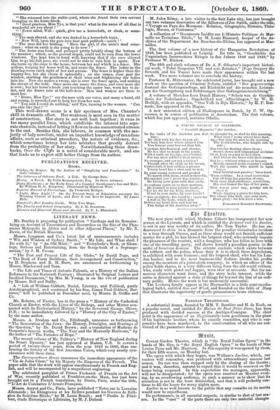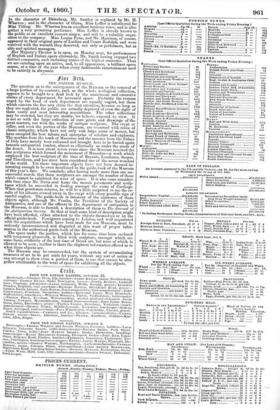1gugir.
Covent Garden Theatre, which is "the Royal Italian Opera" in the hands of Mr. Gye, is "the Royal English Opera" in the hands of Miss Louisa Pyne and Mr. Harrison. In this capacity it was opened by them, for their fifth season, on Monday last.
The opera with which they began, was Wallace's Zurline, which, our readers will remember, was produced with extraordinary success last season. Its run was then stopped only by the closing of the theatre ; and it was, therefore, natural to expect that it would be renewed on the house being reopened. In this expectation the managers, apparently, will not be disappointed ; for the opera was received on Monday even- ing, by an overflowing audience, in such a manner as to show that its attraction is not in the least diminished, and that it will probably con- tinue to fill the house for many nights more.
Lurline is so well known to the public that any remarks on its merits would now be superfluous. Its performance, in all essential respects, is similar to that of last sex= son. In the "cast" of the parts there are only two material changes
In the character of Rhineberg, Mr. Sandey is replaced by Mr. H. Wharton ; and in the character of Ghiva, Miss Leffier is substituted for Miss Pilling. Mr. Wharton has an excellent baritone voice, and is alto- gether a very promising performer. Miss Leffier is already known to the public as an excellent concert-singer, and will be a valuable acqui- sition to the company. Miss Louisa Fyne, and Mr. Harrison, of course, appeared in their original parts of Lurline and Count Rudolph, and were received with the warmth they deserved, not only as performers, but as able and spirited managers. Her Majesty's Theatre is to open, on Monday next, for performances of English and Italian opera alternately, Mr. Smith having engaged two distinct companies, each including names of the highest eminence. Thus we are entering upon an active, and, to all appearance, a brilliant opera season, at a time of the year when every fashionable entertainment used to be entirely in abeyance.



























 Previous page
Previous page